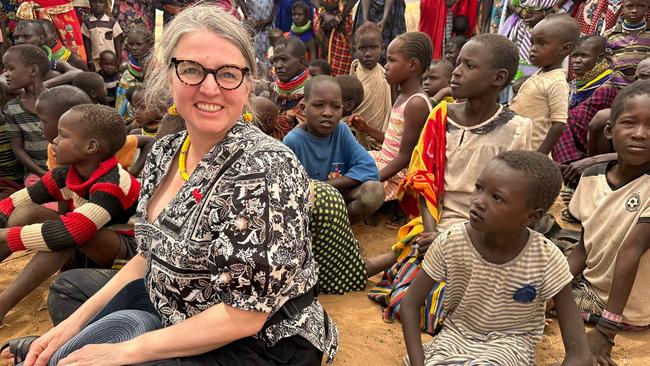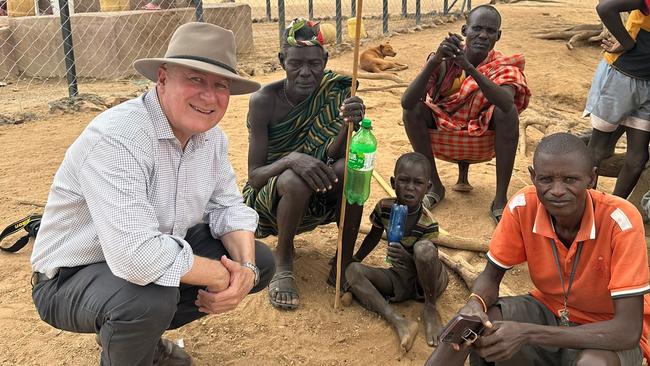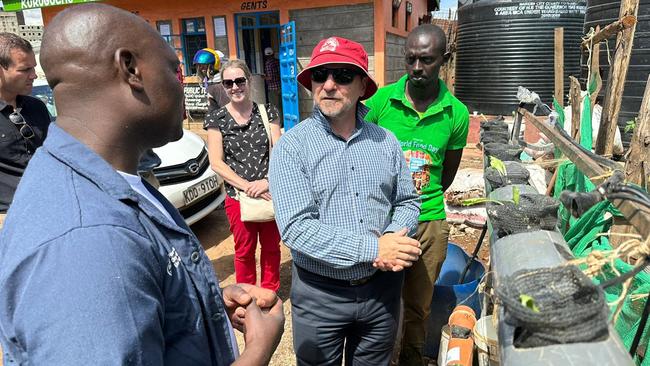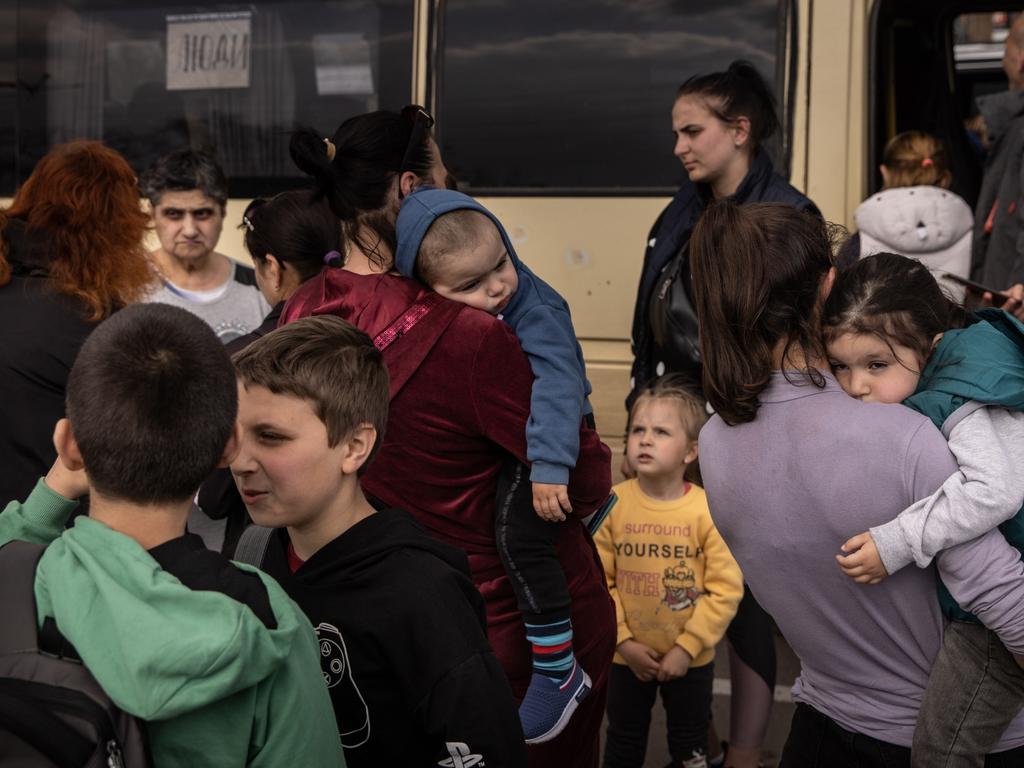Cross-party delegation urges government to help tackle African hunger crisis
Seven Labor, Liberal and Nationals MPs have called for a ‘significant’’ increase to foreign aid funding, including at least $120m to the devastating hunger crisis in East Africa.

Seven Labor, Liberal and Nationals MPs have called for a “significant’’ increase to foreign aid funding, asking the Albanese government to commit at least $120m to the devastating hunger crisis in East Africa.
The MPs signed their names to a joint appeal for funding following a cross-party delegation to Kenya this month, where they saw first-hand the impact of the worst drought in the region in 40 years.
The MPs, including four government backbenchers and a former Nationals deputy prime minister, noted climate change, along with conflict in the region, was driving a “climate-induced crisis of unprecedented proportions’’, which aid agencies have warned was putting millions of people’s lives at risk.
Oxfam and Save the Children estimate one person is dying of hunger every 48 seconds across Kenya, Ethiopia and Somalia.

The political intervention comes after years of cuts or freezes to foreign aid by the previous Coalition government, and a modest increase in the first Labor budget in October.
Labor backbenchers Matt Burnell, Graham Perrett, Tania Lawrence and Senator Louise Pratt; Nationals former deputy PM Michael McCormack, now shadow minister for international development; and Liberal backbenchers James Stevens and Senator Claire Chandler acknowledged a $15m contribution from the Albanese government to the World Food Program and other NGOs responding to the unfolding crisis in the east of Africa.
“We are writing to you as a bipartisan group in relation to the devastating hunger crisis in East Africa,’’ the group said, in a letter to Foreign Minister Penny Wong and International Development Minister Pat Conroy, obtained by The Weekend Australian.
“We have witnessed first-hand the harrowing impact of hunger and malnutrition caused by a brutal combination of the impacts of climate change and conflict, creating a climate-induced crisis of unprecedented proportions.

“Australia has an important role to play in this region and in response to this crisis. Having just witnessed the scale of this devastating crisis, and the work being done to ameliorate it, we write to urge you to significantly increase Australia’s assistance.’’
The Department of Foreign Affairs and Trade said it was “deeply concerned’’ about the growing hunger crisis and was considering opportunities to provide further support.
The bipartisan intervention will be welcomed by aid groups, which have been trying for months to raise awareness of the impending humanitarian disaster creeping across Somalia, Ethiopia and parts of Kenya, fuelled by four years of failed rainy seasons. The agencies’ warnings have largely failed to cut through with a public focused on the war in Ukraine.
Millions of people are facing famine, thousands have already starved to death, and hundreds of thousands more have been forced from their homes, particularly in Somalia, crossing into teeming refugee camps in northern Kenya.
The MPs saw drought-crippled land, malnourished children and overcrowded refugees camps during a week-long delegation to Kenya organised by the Save the Children Australia charity, and funded by the Bill and Melinda Gates Foundation.

The MPs noted Kenya and East Africa were “distant from our region’’ but the war in Ukraine and ongoing conflict in Somalia were causing insecurity in the region, which in turn had “national security implications’’ for Australia. “In 2011, the Australian government contributed $120m in response to a terrible famine in the Horn of Africa,’’ the letter said.
“From what we have witnessed, a contribution of at least that amount is urgently needed if there is to be any hope of averting hundreds of thousands of hunger-related deaths and providing vital food security to the region.
“Importantly, we believe such a contribution from Australia could catalyse contributions from other donors and ease the burden on partners like the United States government, which is underwriting the vast bulk of the humanitarian response.’’
Australia spends about $4.5bn in foreign aid each year. The federal Coalition cut or froze the foreign aid budget every year from 2014 until 2021, when it received a boost during the pandemic.
The Labor government’s first budget contained a modest increase, with further increases scheduled in forward estimates.
A DFAT spokesperson said Australia was “deeply concerned about the increasing number of people around the globe facing acute food insecurity, including in the Horn of Africa’’.
“Australia is actively engaged in the global response to food insecurity. Our immediate focus is on responding to humanitarian needs,’’ the spokesperson said.
“The government has a longstanding partnership with the World Food Program to provide both core and bilateral funding. Building on a contribution of over $157m in 2021-22, Australia has already committed $75m this financial year to support WFP’s lifesaving work including in (the) Horn of Africa, Yemen, Afghanistan and Pakistan.”
The Weekend Australian’s travel to Kenya was facilitated by Save the Children Australia and the Bill and Melinda Gates Foundation






To join the conversation, please log in. Don't have an account? Register
Join the conversation, you are commenting as Logout